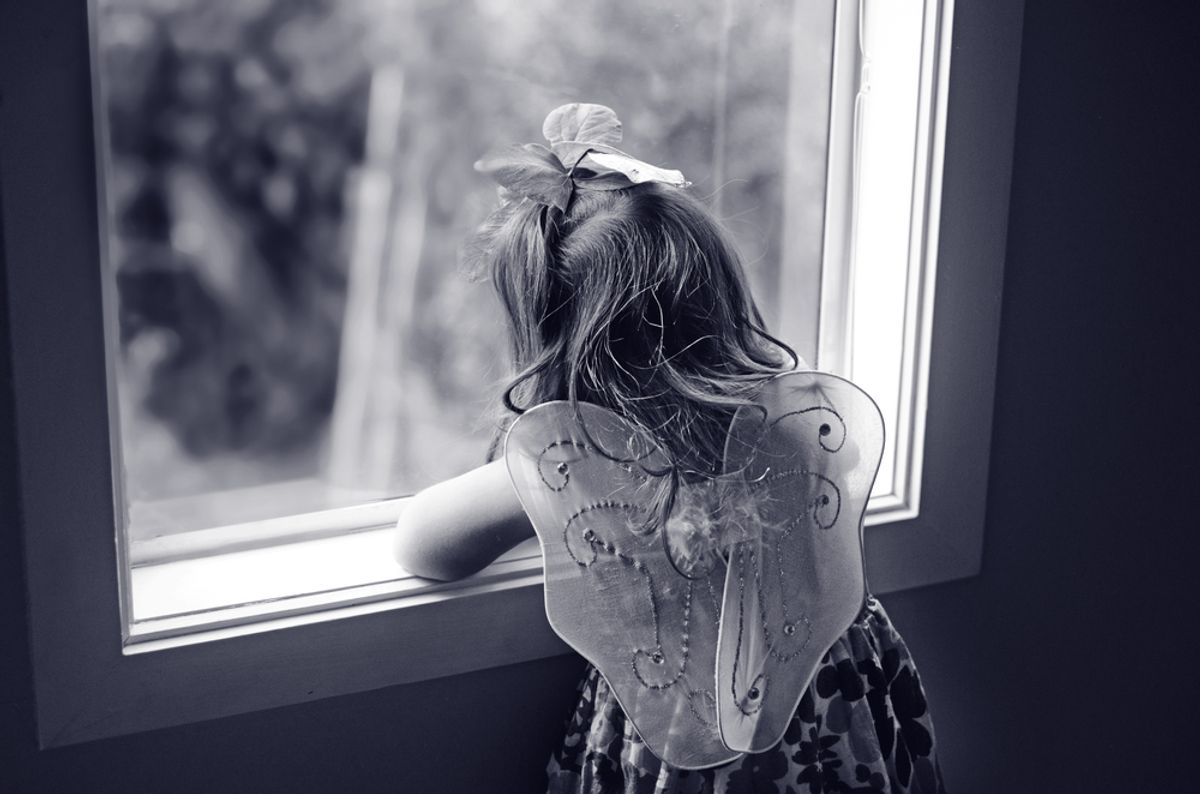Ray Rice's investigation for domestic violence has gotten the public talking about abusive relationships. We are talking about what it does to the survivors of abuse. We are talking about what it does the abusers themselves. But there hasn't been a ton of discussion about how domestic violence affects the children who live with it, too -- especially with the Adrian Peterson child abuse case being dissected simultaneously, where the threat to a child's well-being is a bit more clear.
But a new study from New York University suggests that it might be crucial to take a deeper look about how domestic violence threatens the well-being of children whose parents are in physically or verbally abusive relationships. According to the findings, which appear in the journal Development and Psychopathology, exposure to physical or verbal aggression between parental figures can impede a child's ability to process and control emotions, even in less risky situations.
And the negative impact starts at a shockingly young age. Researchers polled more than a thousand families in North Carolina and Pennsylvania -- specifically areas with high poverty rates -- and found that children under the age of 5 showed great difficulty understanding emotions if they had been exposed to household aggression during infancy. From the press release:
The researchers evaluated the families in a series of home visits from the time a child was two months old through 58 months of age. They gathered data through parent questionnaires, administering tasks to the parents and children, and measuring the level of household chaos – including the number of times children moved, changes in caregiver, noise levels, cleanliness, and the number of people compared to the number of rooms – versus stability. At approximately 58 months of age, the researchers assessed the children's ability to correctly recognize and identify emotions.
Verbal and physical aggression between parents from infancy through early childhood significantly predicted children's ability to accurately identify emotions at 58 months of age. Higher exposure to physical aggression between parents was associated with children's lower performance on a simple emotions labeling task. Surprisingly, higher exposure to verbal aggression was associated with greater emotion knowledge among the children.
Prolonged exposure to aggression between parents was also linked to children's ability to regulate their own feelings of sadness, withdrawal, and fear, placing them at greater risk for symptoms of anxiety and depression later on.
The study shines a light on one more negative aspect of domestic violence that compounds and already massive social problem. It is not, however, an insurmountable one; with more support, survivors of domestic violence -- including children -- can escape relationships that could otherwise have negative consequences for years to come.



Shares